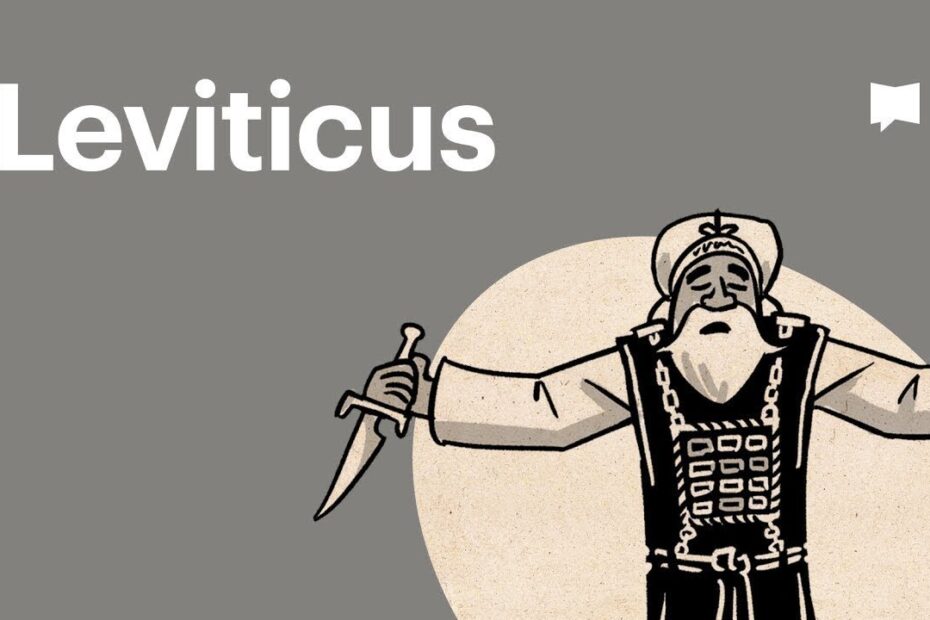What is the main message of Leviticus?
If you’ve ever wondered what the main message of Leviticus is, think of it as the ultimate guidebook for ancient Israelite life—complete with rules, rituals, and a whole lot of holiness. At its core, Leviticus is all about living in a way that honors God and maintains a sacred relationship with Him. It’s like the original “How to Be Holy for Dummies,” but with more incense and fewer diagrams. The book emphasizes the importance of purity, sacrifice, and obedience, reminding readers that God’s presence demands respect and reverence.
But don’t let the long lists of laws fool you—Leviticus isn’t just about rules for the sake of rules. It’s about creating a community that reflects God’s character. From dietary restrictions to moral guidelines, the book is packed with instructions designed to set the Israelites apart as God’s chosen people. Here’s a quick rundown of its key themes:
- Holiness: Be holy because God is holy (Leviticus 19:2).
- Sacrifice: Offerings to atone for sins and express gratitude.
- Purity: Cleanliness, both physical and spiritual, matters.
- Justice: Treat others fairly and with compassion.
So, while Leviticus might seem like a tough read, its message is clear: live intentionally, honor God, and keep it holy—no shortcuts allowed.
What are the three main topics of Leviticus?
Leviticus, the third book of the Bible, is like the ultimate guidebook for ancient Israelite life—think of it as the original “How to Live Right and Not Get Smited” manual. It’s packed with rules, rituals, and regulations, but if you boil it down, there are three main topics that stand out: sacrifices, purity laws, and holiness. These themes are the backbone of the book, and they’re as interconnected as a well-oiled machine—or, in this case, a well-blessed altar.
- Sacrifices: The nitty-gritty of offering animals, grains, and other goodies to God. It’s all about atonement, thanksgiving, and keeping the divine relationship strong.
- Purity Laws: The dos and don’ts of staying clean—both physically and spiritually. Think dietary rules, skin conditions, and even what to do if your house gets moldy (yes, really).
- Holiness: The big-picture goal: living a life set apart for God. This includes moral behavior, justice, and even how to treat your neighbor (spoiler: be nice).
While Leviticus might seem like a laundry list of ancient rules, these three topics are the heart of it. Sacrifices keep the relationship with God intact, purity laws ensure the community stays healthy and holy, and the call to holiness sets the standard for how to live a life that’s pleasing to the divine. It’s a mix of practical advice and spiritual wisdom—like a self-help book, but with more burnt offerings.
What are the two purpose of the book of Leviticus?
Ever wondered why the book of Leviticus exists? It’s not just a random collection of ancient rules about burnt offerings and clean socks. The first purpose of Leviticus is to establish a framework for worship and holiness. It’s like the ultimate guidebook for the Israelites on how to live in a way that’s pleasing to God. Think of it as the original “How to Not Piss Off the Divine” manual, complete with step-by-step instructions on sacrifices, rituals, and staying spiritually squeaky clean.
The second purpose is to set the Israelites apart as God’s chosen people. Leviticus is all about creating a distinct identity for the Israelites, separating them from the “heathen” neighbors who were busy doing who-knows-what. It’s like God’s way of saying, “You’re special, so act like it!” This book lays down the law—literally—on everything from dietary restrictions to moral conduct, ensuring the Israelites stood out like a holy thumb in the ancient world.
- Framework for worship and holiness: A divine rulebook for staying on God’s good side.
- Set apart as God’s chosen people: The ultimate guide to being uniquely holy in a crowded world.
How does Leviticus point to Jesus?
Leviticus, often dubbed the “instruction manual for ancient Israel,” might seem like a dusty old rulebook at first glance. But hidden within its detailed laws and rituals are profound foreshadowings of Jesus. For instance, the sacrificial system—where animals were offered to atone for sin—points directly to Jesus as the ultimate sacrifice. The blood of bulls and goats could only cover sin temporarily, but Jesus’ sacrifice on the cross once and for all dealt with humanity’s sin problem. It’s like Leviticus was the trailer, and Jesus was the blockbuster movie.
Another way Leviticus points to Jesus is through the role of the high priest. The high priest acted as a mediator between God and the people, offering sacrifices and interceding on their behalf. Sound familiar? Jesus is our eternal High Priest, bridging the gap between God and humanity. Plus, Leviticus’ emphasis on holiness—”Be holy, for I am holy”—finds its fulfillment in Jesus, who lived a perfectly holy life. So, while Leviticus might not have a red carpet or a spotlight, it’s definitely pointing to the star of the show: Jesus.
- Sacrificial System: Foreshadows Jesus as the ultimate sacrifice.
- High Priest: Jesus fulfills the role of the eternal mediator.
- Holiness: Jesus embodies the perfect holiness Leviticus calls for.
